Trump Is Fixated On MS-13. But He's Making It Harder For Its Victims To Get Asylum.
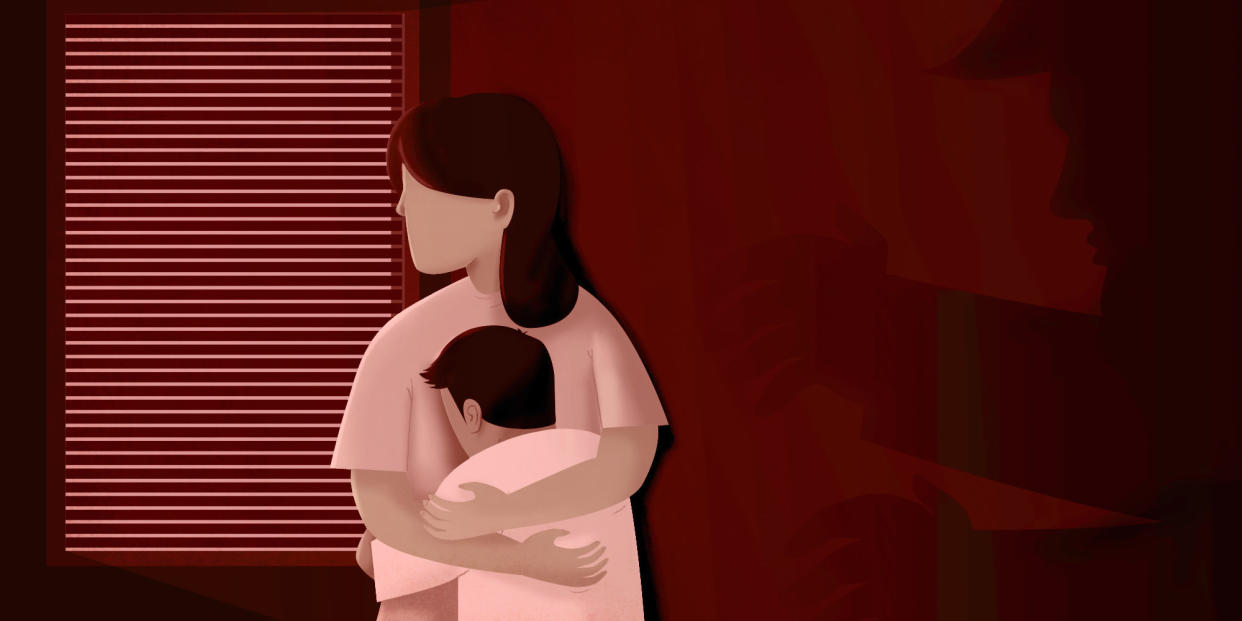
When Angelica was 17 years old, MS-13 gang members killed her father. Nine years later, they tried to kill her, too.
The now-29-year-old Salvadoran woman, who is using a pseudonym for safety reasons, fled to the United States to seek asylum after a botched attempt on her life in 2014, bringing her then-6-year-old son and 16-year-old sister with her. “I couldn’t wait there to see how they killed me or my son,” Angelica said in an interview in Spanish about her decision to leave her home country. But four years later, she’s facing a new challenge: a U.S. administration that’s both intensely focused on the gang that terrorized her and on keeping asylum-seekers like her out.
In his efforts to drum up support for his strict immigration enforcement, President Donald Trump has fixated on the violence perpetrated by members of MS-13. Vastly overstating the scope of MS-13 within the U.S, he has called gang members “animals” and described violence perpetrated by them in gruesome detail in rallies and interviews.
But at the same time, his administration has made it significantly more difficult for the majority of the gang’s victims ― Central Americans like Angelica ― to find safety in the U.S. Trump’s administration changed court precedent to discourage the approval of asylum requests based on gang violence. It has separated 2,000 kids from their parents who’ve crossed the border without authorization, limited the number of people who could approach ports of entry to ask for help each day and attempted to ban people who crossed the border illegally from getting those protections at all.
Last week, the administration took the extreme step of announcing it would force many asylum-seekers to wait in Mexico while their claims are considered ― a lengthy process that could leave them there for months or years.
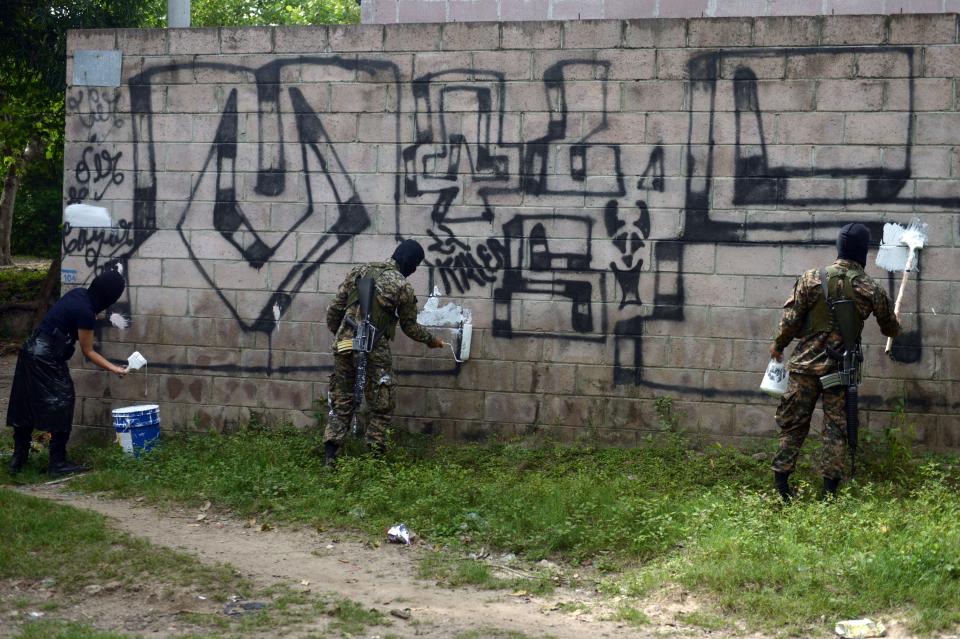
Angelica was 15 when she and her father witnessed MS-13 gang members lighting a factory on fire in their hometown in El Salvador (we won’t name the town to protect her identity), killing someone. The same gang members came for her father two years later and killed him in front of his son.
Angelica’s brother identified the killers in court, and they were sentenced to 15 years in prison. But the family still “lived under constant threat by the gang” over the following decade.
After Angelica joined the police force, the fears grew worse. Gang members pushed her to supply them with police uniforms and weapons. They wanted information. She refused, but they kept asking.
Then, in 2014, MS-13 members attacked Angelica and fractured her jaw, only halting their blows when someone passed by. Later, gang members tried to kidnap her. They threatened to hurt her son and younger sister and warned that if she reported the abuse, they would know.
Angelica had never thought of going to the U.S. before. She had a life in El Salvador ― education, a job and her family. But she came to see leaving as the only way to be safe.
“I had to save my life and my son’s,” she said.
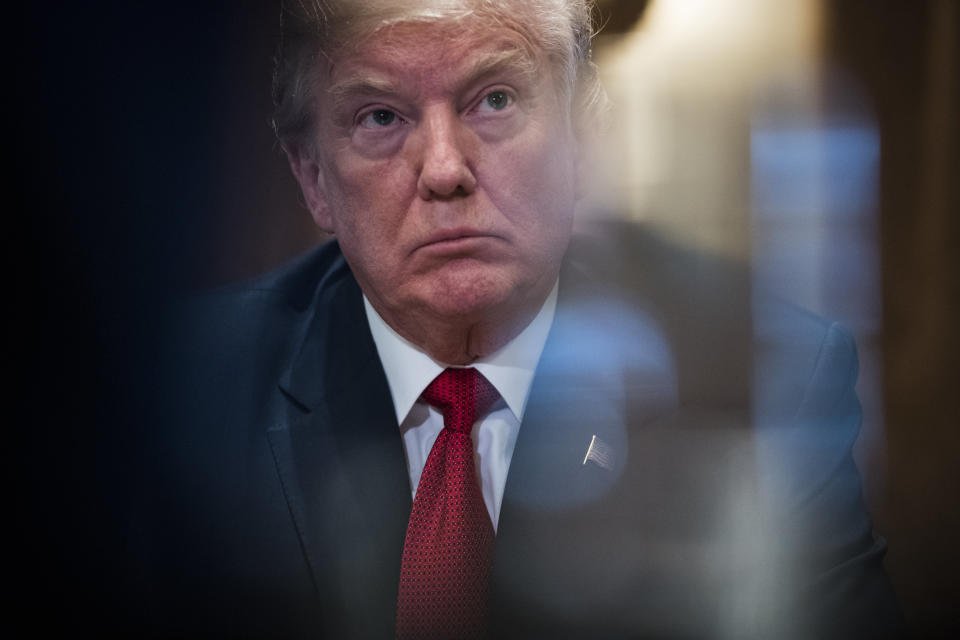
MS-13 was founded by Salvadoran immigrants in Los Angeles in the 1980s, but has become a far bigger menace in Central America than it is in the U.S. “It is indescribable what goes on there,” said Jorja Leap, an anthropologist and expert in gangs at the University of California, Los Angeles. “I don’t think we can grasp where the real terror is and how fear and intimidation rule the day for individuals, for their families, because of the grip of this gang,” she added of residents of these countries.
The FBI estimates that MS-13 has about 10,000 members in the U.S., making it less than 1 percent of the total U.S. gang population. There are about 12,000 MS-13 members in El Salvador, which has a population more than 50 times smaller than the U.S. Unlike in Central America, the gang lacks central leadership in the U.S. and does not have the level of organization one might expect for a group designated as a transnational criminal organization by the government. In 2016, the Congressional Research Service wrote that it might be misleading to call it one.
That’s not to say MS-13 isn’t dangerous or a threat. Its members have committed grisly murders and other crimes. However, law enforcement has already come a long way in fighting the organization, aided by work to prevent youth from joining or to help them quit, said Leap, the anthropologist.
But Trump has harped on MS-13 as an imminent threat to American lives and his administration argues that its proposed immigration crackdown is the only way to keep gang members out.
Trump paints MS-13 as a problem that’s getting worse in the U.S., but ”the truth of the matter is it is less of a problem now than it ever was,” said Leap.
Trump discussed the gang in dozens of public appearances since the beginning of the year, whether the event was related to immigration or not. He mentioned MS-13 during a speech on abortion in May, in a joke during the Gridiron Dinner in March and during an appearance to tout tax reform in February. He invoked the gang when blasting migrant caravans that came from Central America to the U.S.-Mexico border.
Then-Attorney General Jeff Sessions mentioned MS-13 in at least 15 speeches before he was ousted in 2018, and the Department of Justice released about 30 statements on alleged MS-13 members or associates being charged with or convicted of crimes. The Department of Homeland Security frequently highlighted arrests of MS-13 members. During the midterm elections, Republicans invoked MS-13 in campaign ads and argued Democrats cared little about rooting it out.
The message seemed to resonate with the president’s base ― 85 percent of Trump voters believe MS-13 is a very serious or somewhat serious threat to the U.S. as a whole, according to a HuffPost/YouGov poll in July.
Meanwhile, the administration has made it increasingly difficult for immigrants who have faced death threats and other forms of persecution from MS-13 and other gangs to successfully seek asylum at the border. The most significant change came in June, when Sessions, who oversaw immigration courts and could overrule judges’ rulings, issued a decision that effectively narrowed the ability of people to gain asylum. He argued people should no longer claim asylum based on persecution by nongovernmental actors, which includes domestic partners and gangs.
Sessions’ argument was that asylum had been defined too broadly to give reprieve beyond the intention of the law.
Last week, a federal judge blocked much of that policy, ruling that there is “no legal basis for an effective categorical ban on domestic violence and gang-related claims.” The Department of Justice said it was “reviewing [its] options” and continued to defend Sessions’ order.
Meanwhile, its efforts to restrict asylum-seekers continued. The next day, DHS announced it would force most asylum-seekers to remain in Mexico while their claims are processed, a move human rights groups said was illegal and unsafe.
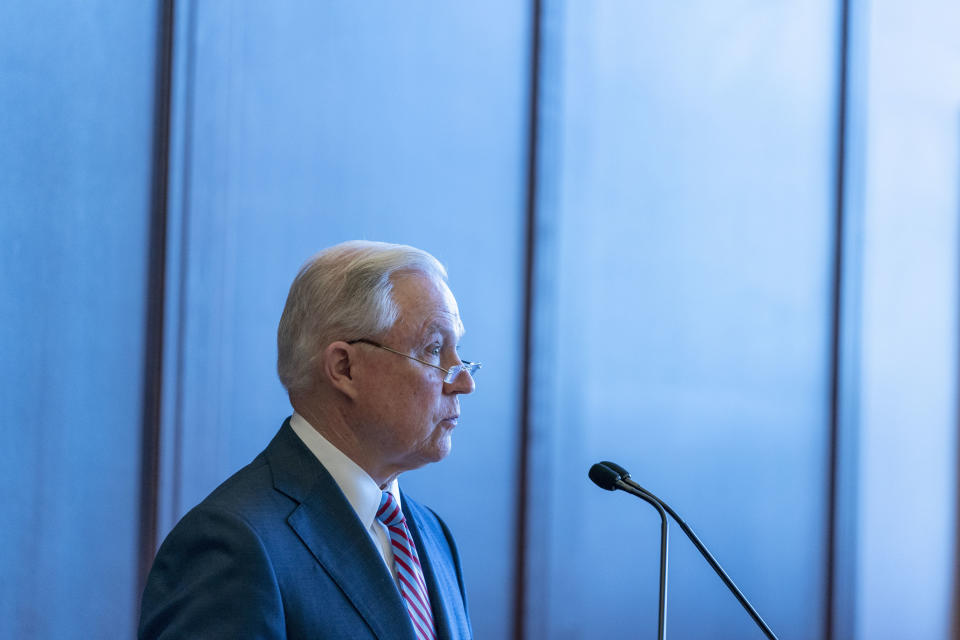
When Angelica, her son and her sister arrived at the border in September of 2014, they crossed the river and walked for hours until Border Patrol agents found them. They were locked up in cold cells with other families.
Angelica told the officer that interviewed her she was seeking asylum. She didn’t realize she and her son would be detained for nearly two months while waiting to be released while they pursued their asylum claim. She watched as other families were deported or decided to leave on their own.
With help from an attorney, Angelica and her son were released on bond to live outside detention while they await a final court decision. She isn’t slated to go before a judge for a final appearance until 2020 ― far later than she would like.
Angelica has been following the Trump administration’s immigration policy changes and is worried about what they could mean. She’s hopeful for the best ― Angelica has an attorney, and can argue she is qualified for asylum based on persecution as a police officer or other grounds, versus solely gang violence. But it all depends on the interpretation of the immigration judge.
Immigrant rights advocates argue the Sessions asylum decision is already leading to the deportations of people victimized by gangs like MS-13, putting them in danger. But the asylum decision aligns with Trump’s other policy objectives ― more immigration arrests and deportations, a border wall and restrictions on relief ― in another way.
“It’s kind of like any way we can keep Central American people out of the country, we will, whether it’s by calling them all criminals or whether it’s putting up barriers to people who are fleeing actual criminals,” said Lindsay Harris, an asylum expert and professor at University of the District of Columbia School of Law.
Angelica’s brother remains in El Salvador, and she worried he is still unsafe. She is looking for a way to bring him and other family members to the U.S. legally. But she sympathizes with those who, like her, feel they need to escape immediately.
“Parents are fleeing because in our countries there is no security for our lives,” Angelica said. “People have to know the reasons why people are coming.”
Sarah Ruiz-Grossman contributed reporting.
Love HuffPost? Become a founding member of HuffPost Plus today.
Also on HuffPost
April 2015

June 2015
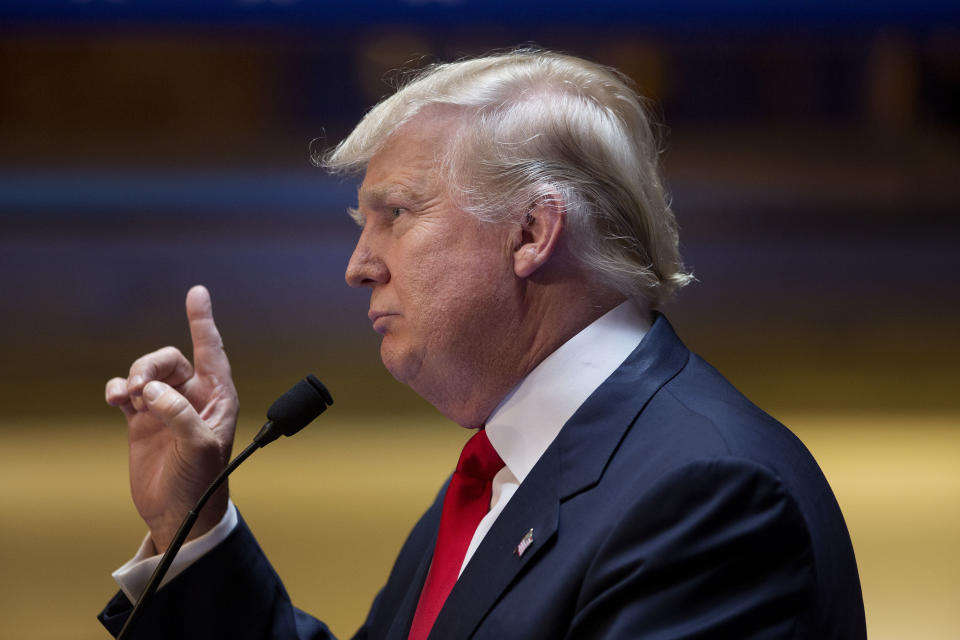
August 2015
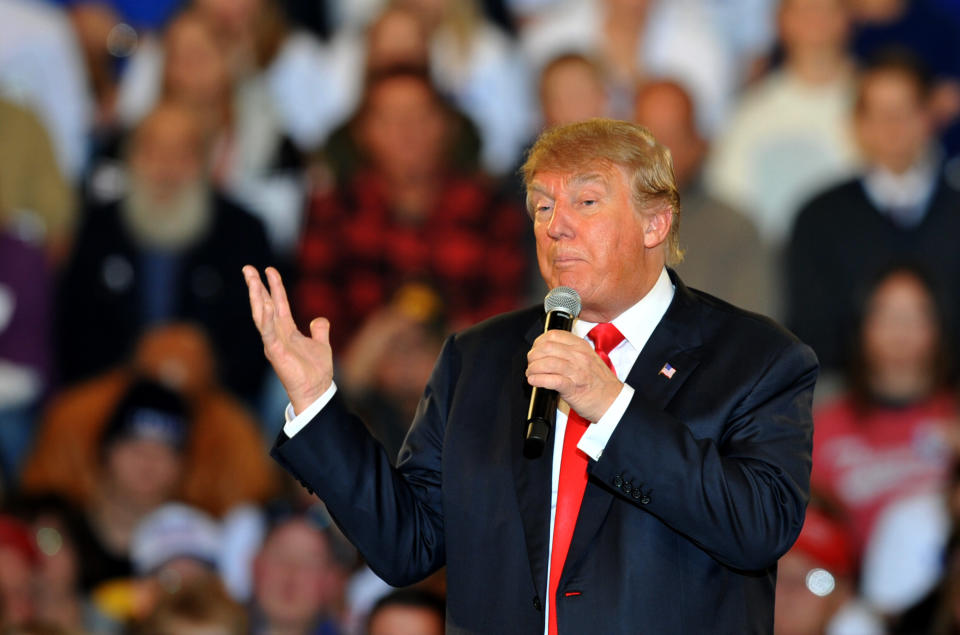
September 2015

November 2015
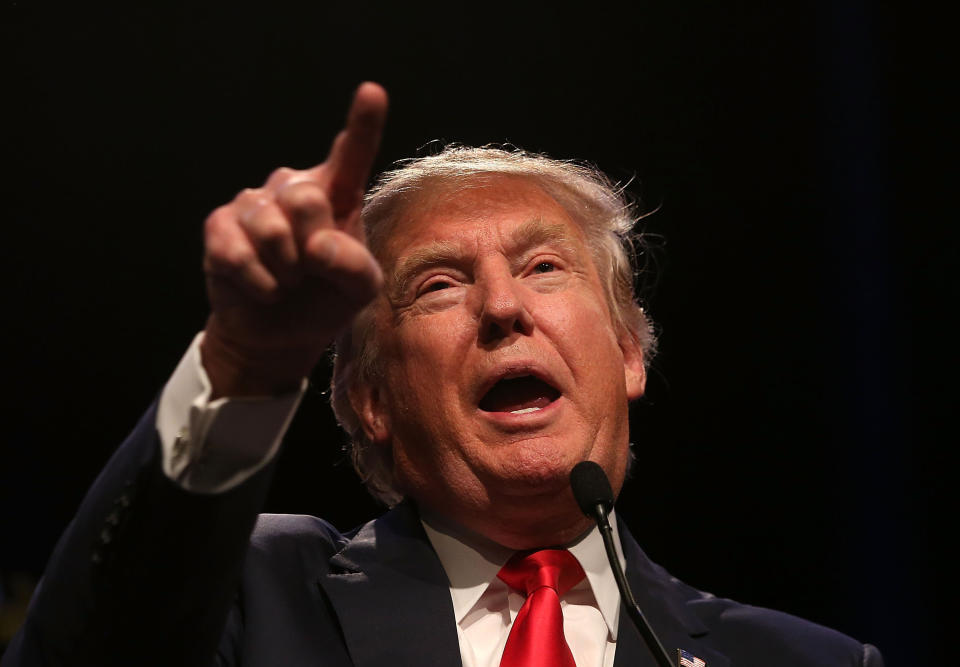
February 2016

March 2016

April 2016

July 2016

September 2016

September 2016

This article originally appeared on HuffPost.

